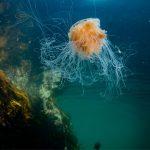New research suggests genetics influences resilience to the cold
New research shared by The Conversation Trust has found that one in five people lack a muscle protein called alpha-actini-3. Its absence is thought to make people more resilient to cold temperatures.
The study found that people who were alpha-actinin-3 deficient could maintain a higher core temperature and shiver less when exposed to the cold compared to those without.
42 men aged 18 to 40 years from Lithuania were exposed to 14-degree water. 30% of participants with the alpha-actinin-3 protein reached the full 120 minutes of exposure, compared to 69% of those without the protein.
It is thought the absence of the alpha-actinin-3 protein became more common as modern humans migrated out of Africa and into the colder climates of Europe and Asia.
The reasons for this increase have remained unknown until now.








